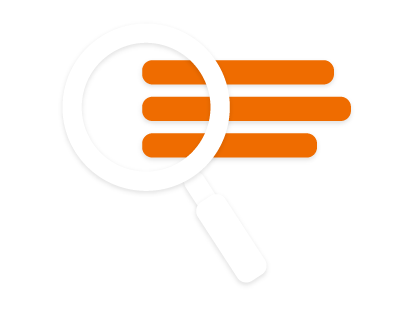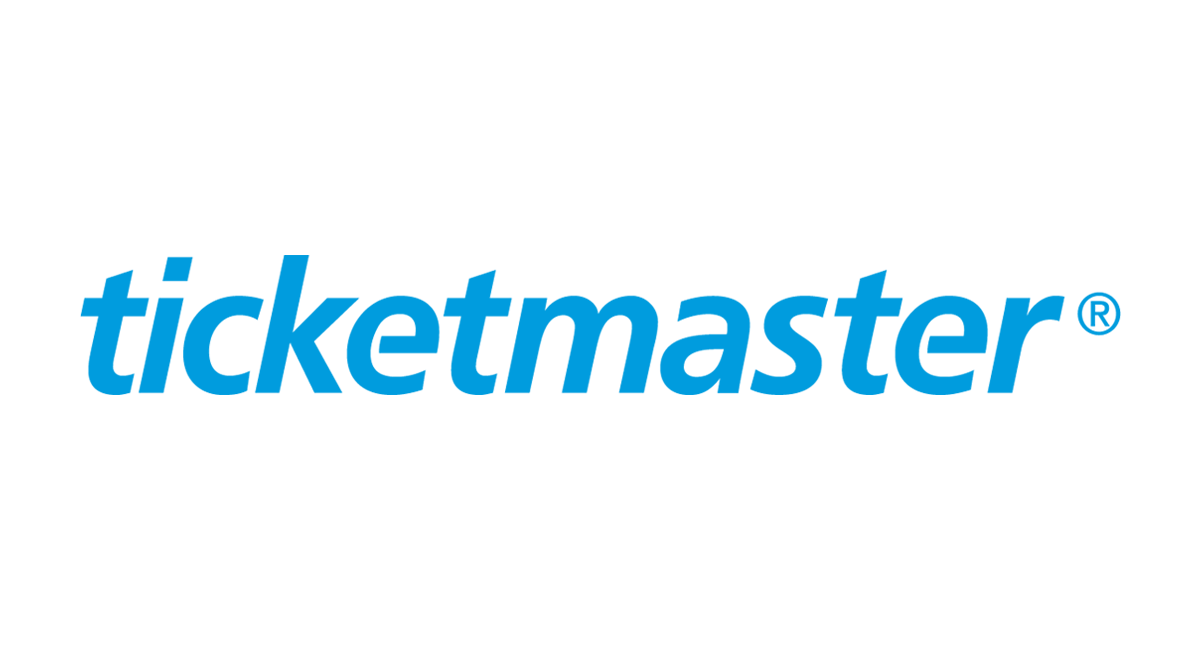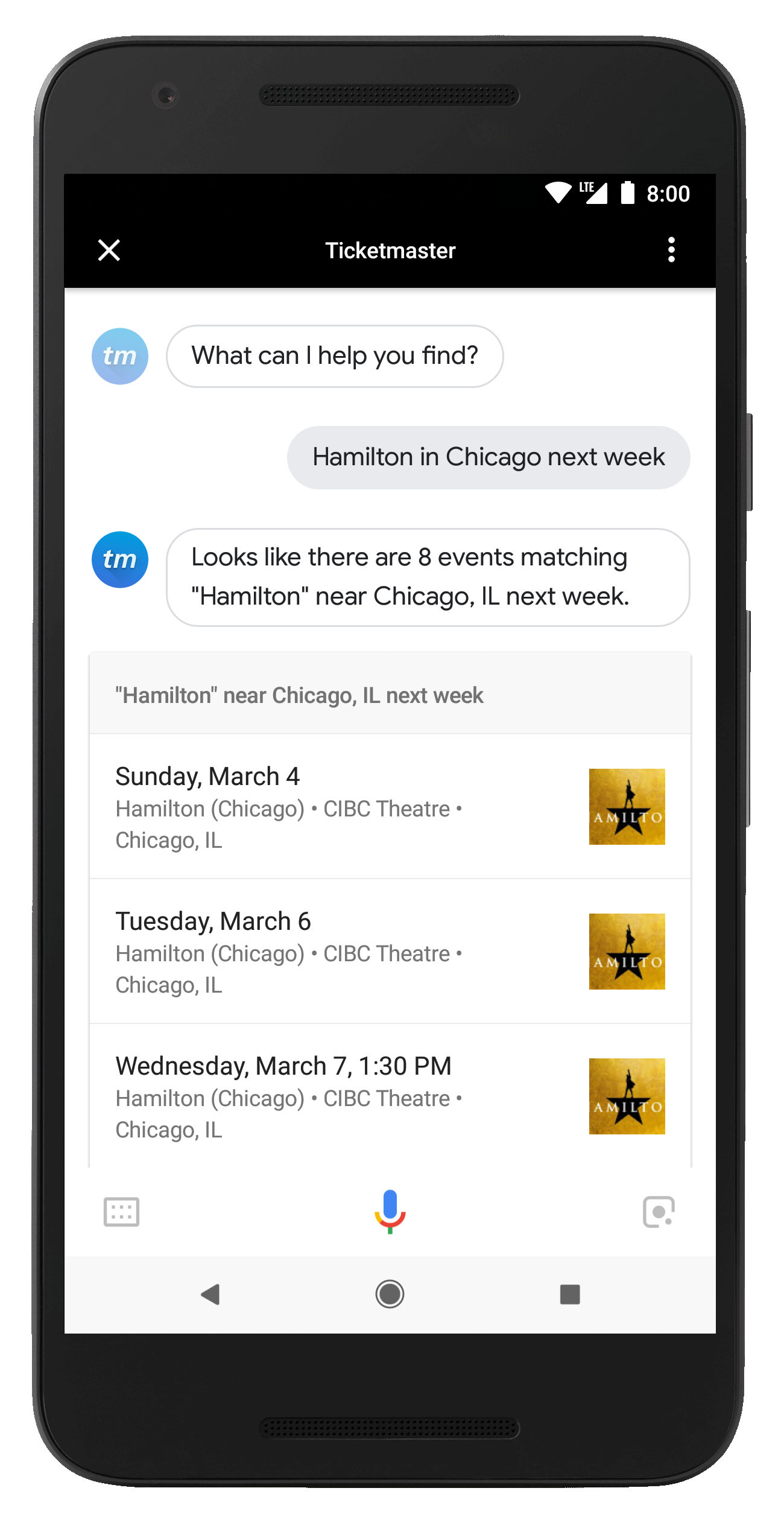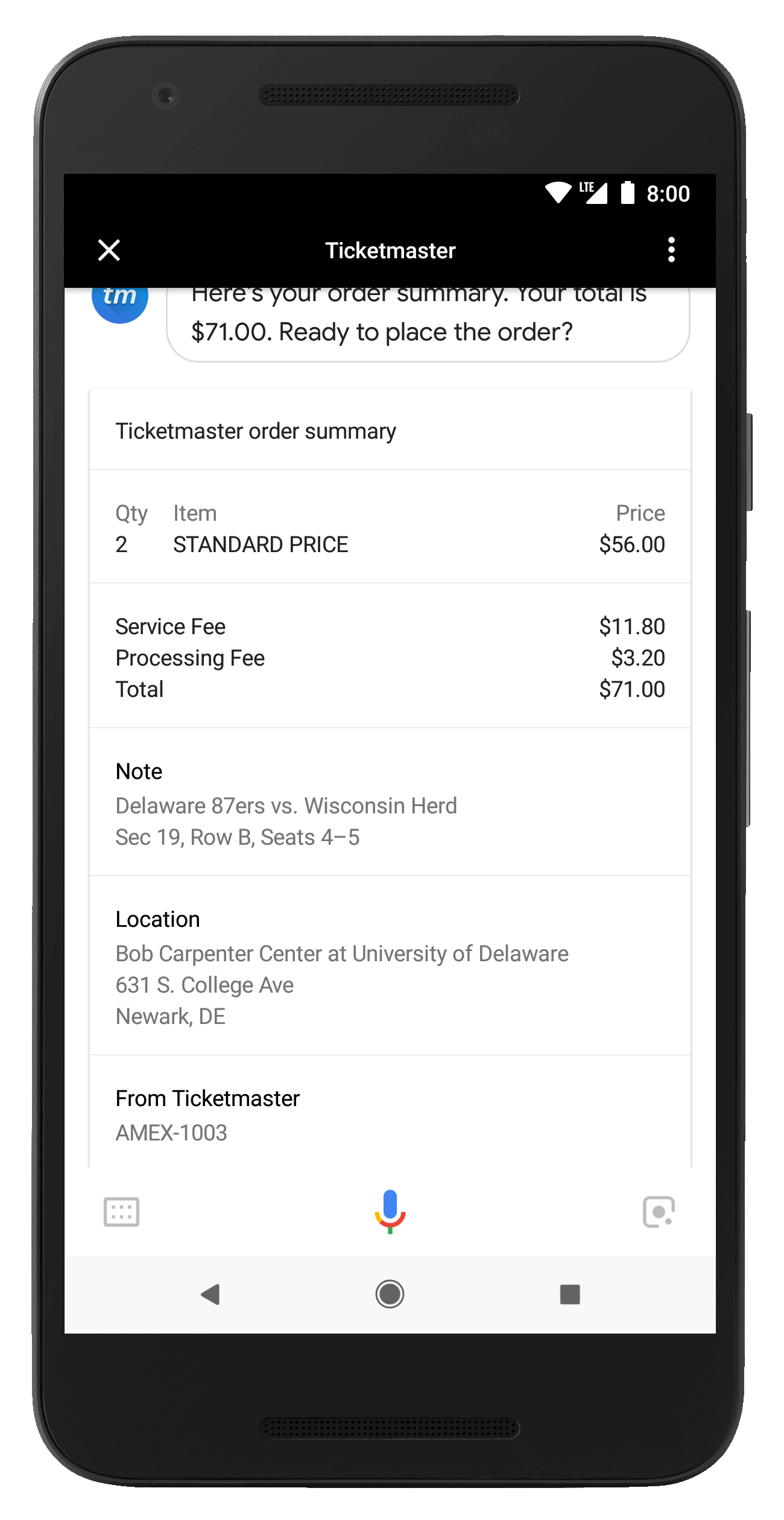
Case studies

Ticketmaster connects people with events and tickets faster through conversational experiences using Dialogflow
Ticketmaster is the world's top live-event ticketing company. Founded in 1976, they sell more than 500 million tickets annually in 29 different countries. Recognizing the ever-increasing accuracy and power of natural language processing, Ticketmaster turned to Dialogflow's conversational technology to provide faster and more personalized services for ticket buyers.
"The opportunities around conversational tools are huge," says Patrick Jackson, Ticketmaster software engineer. The company saw possibilities for offering a better browsing experience, improving search for events, and even providing directions to venues and parking. "These conversational interfaces allow us to make a really quick and helpful experience—in some cases, more so than opening an app or website. Our goal is to be your assistant for finding events and getting tickets," Jackson adds.
Approach

Before they started using Dialogflow in January 2017, the Ticketmaster team investigated several competing technologies. "We recognized the pros and cons of many of them and decided on Dialogflow," Jackson explains. The team had three main reasons for choosing Dialogflow:
- Quick and easy to start building: The team saw minimal effort and coding needed to get their conversational experience up and running.
- Good developer experience: The intuitive development environment allowed the team to easily choose how the experience should look, feel, and sound.
- Easy to scale: The experience would be able to scale well as the user base grew.
Even though they had little natural language processing experience, the team easily used Dialogflow's tools to create compelling voice user experiences. "It was great to leverage Dialogflow's expertise in machine learning and natural language processing, so we can concentrate on the stuff that we knew how to do", Jackson says. "Dialogflow made it easy for us to add an intent and to make sure that our system was trained to understand the names of thousands of different musical artists. Dialogflow's simplicity and flexibility let us concentrate on the back end—handling the domain of event discovery and ticketing, which is our area of expertise."
Jackson's team was also impressed by the accuracy of Dialogflow's natural language understanding. "It's mind-blowing how well the system translates my speech and that of everybody around me," he says. For example, a Ticketmaster customer can simply say to the Google Assistant on their Android or iOS phone, "Talk to Ticketmaster" and then directly ask Ticketmaster, "What fun events are happening this weekend?" Ticketmaster will then show a list of venues, dates, and times. Through conversing with the conversational interface, the customer can purchase tickets directly through an existing Ticketmaster account.
Results

"Dialogflow helped our team get a conversational experience up quickly without spending a lot of hours coding," Jackson says. Seeing great results, the team plans to use Dialogflow’s cross-platform capabilities to scale up their efforts and launch the conversational experience to more devices with the Google Assistant built-in, to more platforms such as Amazon Alexa, Facebook Messenger, and Cortana, and to international markets outside the US. "We're just recognizing the power of Dialogflow," Jackson adds. "I'm starting to feel that this is a new wave of human-computer interaction."
While Ticketmaster continues refining the system, "we feel we've created something that does sound pretty close to human," Jackson says. The team continues to improve the user journey using Dialogflow's platform. "Once we know users better, we can make better recommendations for events that might interest them and help them purchase tickets effortlessly. I'd love to do that for more people and that's how we'll know we've succeeded."
